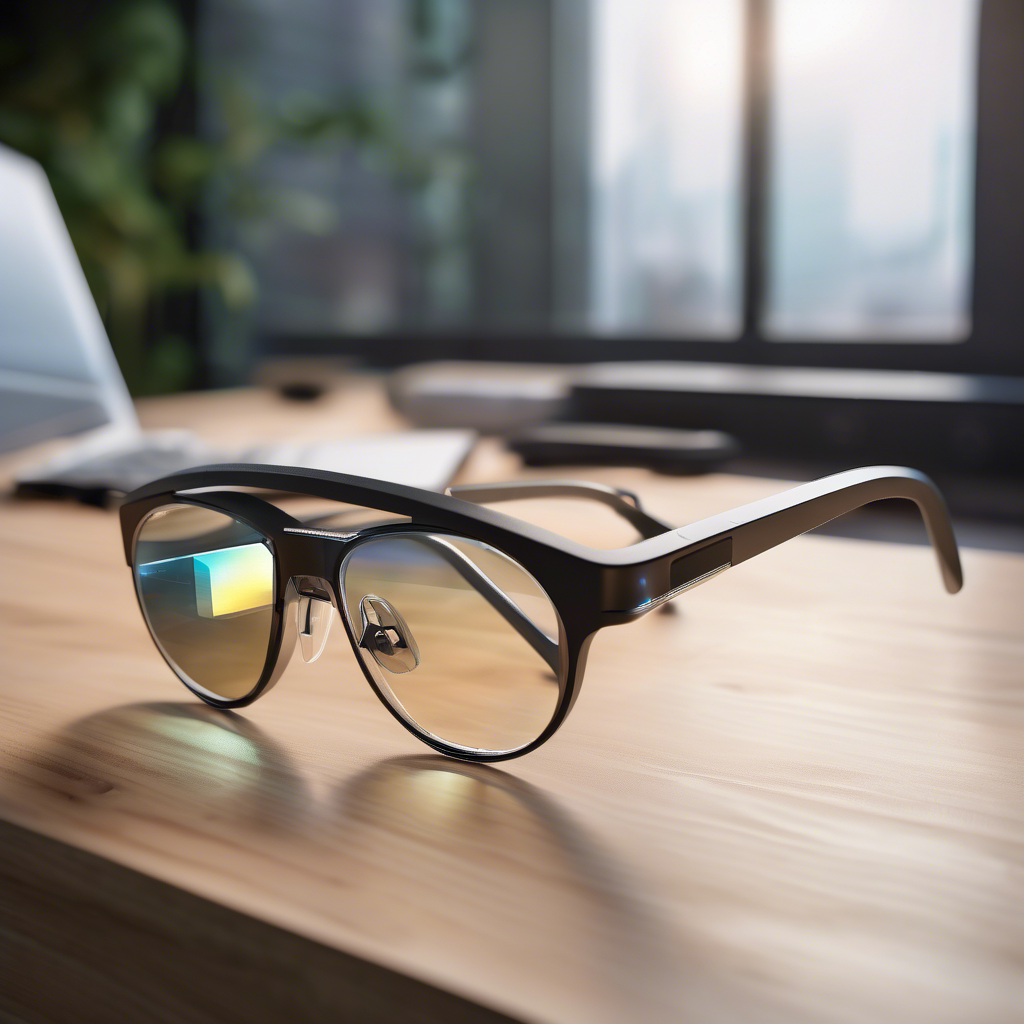Google Returns to Smart Glasses Market with New Android XR Prototype and Key Partnerships

Google is making a notable return to the smart glasses market over a decade after its initial Google Glass failed to gain widespread acceptance. At the 2025 Google I/O event, the company revealed its latest Android XR glasses prototype and announced partnerships with Samsung and Warby Parker, signaling a renewed dedication to advancing augmented reality (AR) and artificial intelligence (AI). This reflects the increasing significance of these technologies in everyday life and digital interactions. The original 2013 Google Glass struggled due to its $1, 500 price, awkward design, privacy concerns, and limited practical use, which hindered market adoption. Google's new smart glasses aim to overcome these issues by seamlessly integrating physical environments with digital enhancements powered by cutting-edge AR and AI technology. The Android XR glasses connect directly to smartphones, offering users mobile access to AR apps and AI features. Additionally, Google introduced Aura glasses, which pair with a Qualcomm-powered custom computer for a more powerful and independent experience, indicating Google’s strategy to serve varied user needs and market segments. Google’s reentry into smart glasses highlights the growing role of wearables as essential AI computing interfaces. Unlike previous views treating AR glasses as mere novelties, these devices are now seen as valuable tools that enhance productivity, communication, and entertainment through immersive, intelligent interactions. Despite unveiling promising prototypes and forming key alliances, Google stated it does not plan to release these smart glasses commercially within the current year. The company is proceeding cautiously in response to competition from Meta and others preparing new smart eyewear launches.
This measured approach suggests Google wants to refine the technology, optimize user experience, and define clear value before mass production. Co-founder Sergey Brin candidly acknowledged the shortcomings of the original Google Glass, noting that lessons learned have guided Google’s renewed focus. Leveraging modern AI advances, Google now promotes its smart glasses as more than wearable displays—positioning them as integral tools for augmenting reality, performing AI-driven tasks, and bridging digital and physical worlds. The collaboration with Samsung and Warby Parker emphasizes Google’s goal to combine leading-edge technology with stylish, practical eyewear. Samsung’s electronics expertise and Warby Parker’s strong consumer-friendly design reputation together address earlier critiques concerning aesthetics and usability. In summary, Google’s renewed push into AR smart glasses marks a significant step in the wearable technology landscape. Equipped with improved technology, strategic partnerships, and AI integration, Google aims to shape the future of smart eyewear. Although immediate market release is not planned, the prototypes signal promising progress that could transform how users engage with digital content through everyday objects like glasses. As competition intensifies, attention will be on Google and its partners to see if smart glasses become mainstream tools that enhance human capabilities and connectivity in the coming years.
Brief news summary
Over a decade after the original Google Glass faced challenges like high costs, awkward design, privacy concerns, and limited functionality, Google is making a strong comeback in the smart glasses market. At the 2025 Google I/O event, the company unveiled new Android XR glasses prototypes and announced partnerships with Samsung and Warby Parker, signaling a renewed focus on augmented reality (AR) and artificial intelligence (AI). These glasses aim to seamlessly blend AR and AI to enhance user experience. While Android XR models connect to smartphones, the advanced Aura glasses offer a standalone experience powered by Qualcomm-based computing. Google is improving technology and usability to compete with rivals like Meta. Co-founder Sergey Brin emphasized learning from past mistakes to guide current development. Collaborations with Samsung and Warby Parker combine cutting-edge tech with stylish, practical eyewear. Google envisions these AI-powered glasses as essential tools for productivity, communication, and entertainment. This revival marks a major milestone in wearable technology, positioning Google to lead the future of mainstream AR glasses that integrate digital and physical realities.
AI-powered Lead Generation in Social Media
and Search Engines
Let AI take control and automatically generate leads for you!

I'm your Content Manager, ready to handle your first test assignment
Learn how AI can help your business.
Let’s talk!

Artificial intelligence, blockchain drive payment…
The payments landscape is evolving rapidly, with numerous startups spearheading innovations that are reshaping banking, particularly in emerging areas like stablecoins and artificial intelligence (AI).

SoftBank Proposes $1 Trillion AI and Robotics Hub…
SoftBank founder Masayoshi Son has unveiled an ambitious plan to create a $1 trillion artificial intelligence (AI) and robotics hub in Arizona, aiming to boost the United States' high-tech manufacturing capabilities and position the country as a global leader in advanced technology and innovation.

SEC Requests Revised S-1 Forms for Solana ETF App…
The United States Securities and Exchange Commission (SEC) has recently requested amended filings for the proposed Solana-based exchange-traded funds (ETFs), indicating a possible acceleration in the approval process for these financial products.

Anthropic's Research Highlights Unethical Behavio…
A recent study by Anthropic, a prominent artificial intelligence research firm, has revealed troubling tendencies in advanced AI language models.

Apple Considers Acquisition of AI Search Startup …
Apple Inc., known for its innovative products and services, has reportedly initiated early internal discussions about potentially acquiring Perplexity, a startup specializing in AI-driven search technologies.

Artificial Intelligence and Blockchain Discussion…
Join us for an engaging and informative event that explores the latest advancements in Artificial Intelligence (AI) and Blockchain technology.

Ford explores decentralized legal data storage on…
Ford Motor Company, a Fortune 500 firm, has partnered with Iagon and Cloud Court to initiate a proof-of-concept (PoC) centered on decentralized legal data storage, according to an announcement dated June 18.

 Auto-Filling SEO Website as a Gift
Auto-Filling SEO Website as a Gift








 Auto-Filling SEO Website as a Gift
Auto-Filling SEO Website as a Gift

